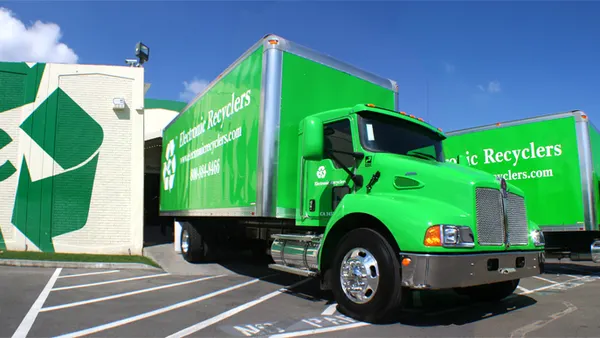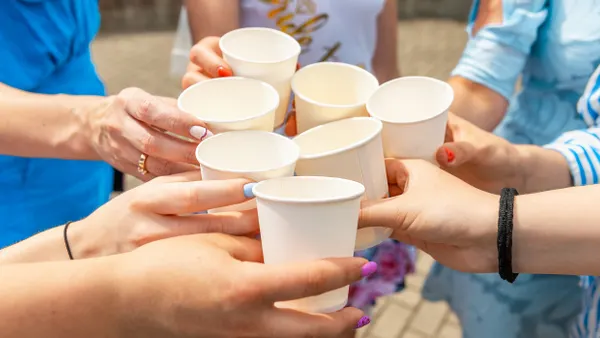Dive Brief:
- The Phoenix Public Works Department (PWD) anticipates it could see monthly revenues increase by $200-250,000 at the city-owned North Gateway MRF following planned infrastructure upgrades. Phoenix earned an estimated $9.2 million in overall recycling revenue in fiscal year 2018 and is projecting $6 million for 2019.
- The planned $4.5 million upgrade is being funded by a $3 million no-interest loan from the Closed Loop Fund (which Phoenix will pay off at $50,000 per month), $1 million from the neighboring city of Peoria, and the remainder from city funds.
- MRF residual rates have increased from 21% to around 40% due to commodity market changes. The goal is to get that number back to pre-China levels and ensure the city's recycling program remains viable. “We’re not going to take anything out of the recycling program and it’s really up to us as solid waste managers to find a way to make this material marketable again," Public Works Director Ginger Spencer told Waste Dive.
Dive Insight:
Following the enactment of China's scrap import policies, Phoenix has weathered many of the usual effects at both of its city-owned MRFs. The North Gateway MRF, operated by Republic Services via subsidiary ReCommunity, has reportedly added labor and adjusted equipment to keep up. But that still hasn't been enough to keep residual rates from rising — which means more material is heading to the landfill.
“We’re not so much getting killed on the actual price of the commodity sales, but because of the new specifications – and the equipment at our MRFs can’t really meet those specifications – we’re losing material that should otherwise, or was otherwise, recycled," said Assistant Public Works Director Joe Giudice. "It’s going out as residue."
The city has said these upgrades wouldn't have been possible without the Closed Loop loan. Specific additions include new newspaper screens, multiple plastic sorters, an expanded pre-sort area and equipment to meter the inbound flow. During downtime later this year, material will go to a Republic Services MRF in Scottsdale that has already gotten an upgrade itself.
Giudice said that beyond reducing the MRF's residual rate and capturing more value, the overarching goal is to ensure Phoenix maintains a reputation for quality material. This can help the city establish new relationships with brokers and potentially be on more favorable terms when negotiating future operating contracts.
“We just would rather be in that catbird seat," he said.
Next on the city's list of priorities is evaluating the need for potential upgrades at its second 27th Avenue MRF. The facility, which is more than a decade older than North Gateway, has been described as "very labor inefficient."
In addition to these MRF upgrades, PWD has also been working to reduce inbound contamination through cart-tagging pilots using The Recycling Partnership's model. So far, the city has seen a 75% improvement along targeted routes. Through its Reimagine Phoenix initiative, the city is also working to create more local end markets for challenging materials, such as mixed plastics.
The city has set goals to achieve 40% landfill diversion by 2020 and "zero waste" by 2050, so PWD remains committed to continually evaluating new options. It may only cost the city $17 per ton to dispose material at its own landfill – a bargain compared to many parts of the country – but the site is 60 miles away, and space is finite.
“We send a million tons of trash to the landfill each and every year. If we keep doing what we’re doing, it’s not sustainable," said Spencer, noting that regional population growth is expected to continue at a fast pace around the country's fifth-largest city. "[B]y being creative, by being innovative, by partnering with organizations, we actually are saving money in the long run."











